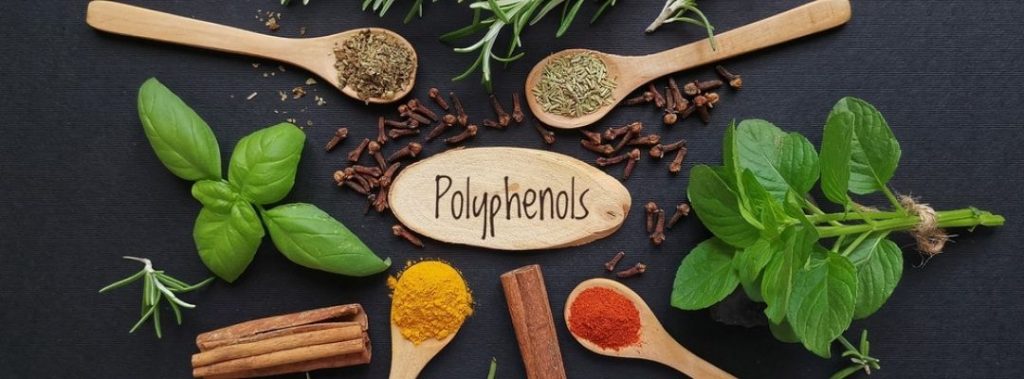Polyphenols are a category of plant compounds that offers various health benefits.
Regularly consuming polyphenols is thought to boost digestion and brain health, as well as protect against heart disease, type 2 diabetes, and even certain cancers.
Dark chocolate, tea, and berries are some of the best-known sources. Yet, many other foods also offer significant amounts of these compounds.
What are polyphenols?
Polyphenols are a category of compounds naturally found in plant foods, such as fruits, vegetables, herbs, spices, tea, dark chocolate, and wine.
They can act as antioxidants, meaning they can neutralize harmful free radicals that would otherwise damage your cells and increase your risk of conditions like cancer, diabetes, and heart disease.
Polyphenols are also thought to reduce inflammation, which is thought to be the root cause of many chronic illnesses .
Types of polyphenols
Types of polyphenols have been identified. They can be further categorized into 4 main groups :
- Flavonoids. These account for around 60% of all polyphenols. Examples include quercetin, kaempferol, catechins, and anthocyanins, which are found in foods like apples, onions, dark chocolate, and red cabbage.
- Phenolic acids. This group accounts for around 30% of all polyphenols. Examples include stilbenes and lignans, which are mostly found in fruits, vegetables, whole grains, and seeds.
- Polyphenolic amides. This category includes capsaicinoids in chili peppers and avenanthramides in oats.
- Other polyphenols. This group includes resveratrol in red wine, ellagic acid in berries, curcumin in turmeric, and lignans in flax seeds, sesame seeds, and whole grains.
The amount and type of polyphenols in foods depend on the food, including its origin, ripeness, and how it was farmed, transported, stored, and prepared.
Polyphenol-containing supplements are available as well. However, they’re likely to be less beneficial than polyphenol-rich foods .

Anticancer Properties
Polyphenols’ antioxidant and anti-inflammatory effects could lower your risk of cancer. Studies show that polyphenols may even block tumor growth and kill active cancer cells.
Raising Immunity
That polyphenols can activate your immune system to fight off infection and disease. Polyphenols also promote good bacteria growth in your gut and limit harmful bacteria.
This effect supports good digestion, but a healthy balance of bacteria is also essential to strong immune system function.
Health benefits of polyphenols
Polyphenols have been linked to various health benefits.
May lower blood sugar levels
Polyphenols may help lower your blood sugar levels, contributing to a lower risk of type 2 diabetes.
That’s partly because polyphenols may prevent the breakdown of starch into simple sugars, lowering the likelihood of blood sugar spikes after meals .
These compounds may also help stimulate the secretion of insulin, a hormone that’s required to shuttle sugar from your bloodstream into your cells and keep your blood sugar levels stable .
Various studies further link polyphenol-rich diets to lower fasting blood sugar levels, higher glucose tolerance, and increased insulin sensitivity — all important factors in lowering your risk of type 2 diabetes .
In one study, people eating the highest amounts of polyphenol-rich foods had up to a 57% lower risk of developing type 2 diabetes over 2–4 years, compared with those eating the lowest amounts .
Among polyphenols, research suggests that anthocyanins may offer the most potent antidiabetic effect. They’re typically found in red, purple, and blue foods, such as berries, currants, and grapes .
May lower your risk of heart disease
Adding polyphenols to your diet may improve heart health.
This is largely due to the antioxidant properties of polyphenols, which help reduce chronic inflammation, a risk factor for heart disease .
Two recent reviews link polyphenol supplements to lower blood pressure and LDL (bad) cholesterol levels, as well as higher HDL (good) cholesterol .
Another review found a 45% lower risk of death from heart disease in those with higher enterolactone levels, which are a marker of lignan intake. Lignans are a type of polyphenol typically found in flax seeds and whole grains .

May prevent blood clots
Polyphenols may reduce your risk of developing a blood clot.
Blood clots are formed when platelets circulating in your bloodstream begin to clump together. This process is known as platelet aggregation and is useful in preventing excess bleeding.
However, excess platelet aggregation can cause blood clots, which can have negative health effects, including deep vein thrombosis, stroke, and pulmonary embolism .
According to test-tube and animal studies, polyphenols may help reduce the platelet aggregation process, thereby preventing the formation of blood clots .
May protect against cancer
Research consistently links diets rich in plant foods to a lower risk of cancer, and many experts believe that polyphenols are partly responsible for this .
Polyphenols have strong antioxidant and anti-inflammatory effects, both of which can be beneficial for cancer prevention .
A recent review of test-tube studies suggests that polyphenols may block the growth and development of various cancer cells .
In humans, some studies link high blood markers of polyphenol intake to a lower risk of breast and prostate cancers, while others find no effects. Therefore, more studies are needed before strong conclusions can be made .
May promote healthy digestion
Polyphenols may benefit digestion by promoting the growth of beneficial gut bacteria while fending off harmful ones .
For instance, evidence suggests that polyphenol-rich tea extracts can promote the growth of beneficial bifidobacteria .
Similarly, green tea polyphenols may help fight off harmful bacteria, including C. difficile, E. Coli, and Salmonella,as well as improve symptoms of peptic ulcer disease (PUD) and inflammatory bowel disease (IBD) .
Furthermore, emerging evidence indicates that polyphenols may help probiotics thrive and survive. These are beneficial bacteria that occur in certain fermented foods and can be taken in supplement form. However, more research is needed .
May promote brain function
Polyphenol-rich foods may boost your focus and memory.
Drinking grape juice, which is naturally rich in polyphenols, helped significantly boost memory in older adults with mild mental impairment in as little as 12 weeks .
Others suggest that cocoa flavanols may improve blood flow to the brain and have linked these polyphenols to improved working memory and attention.
Similarly, the polyphenol-rich plant extract Ginkgo biloba appears to boost memory, learning, and concentration. It has also been linked to improved brain activity and short-term memory in those with dementia.

